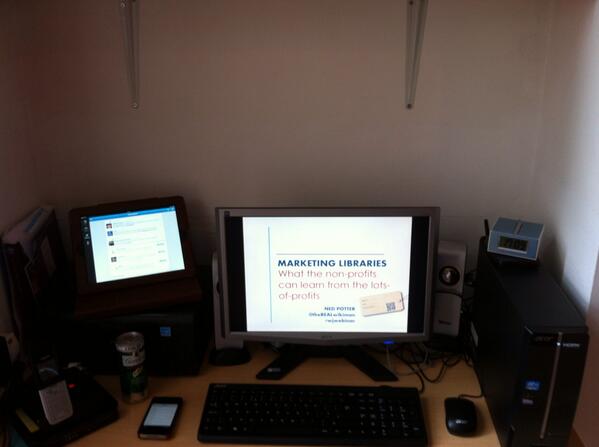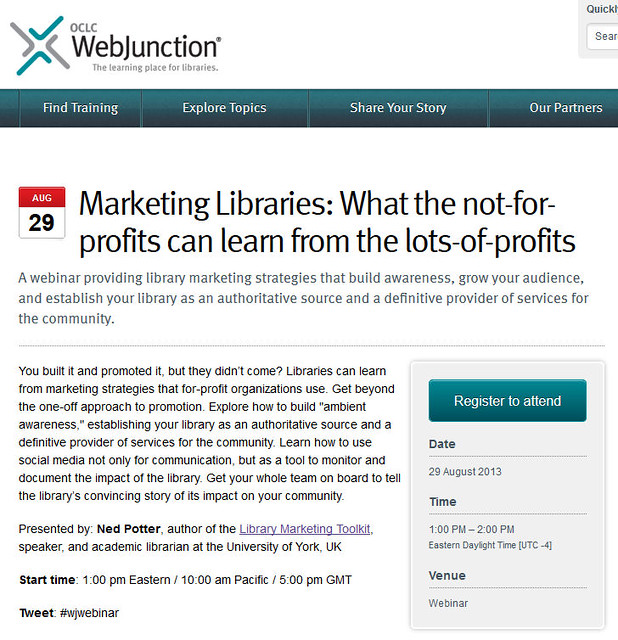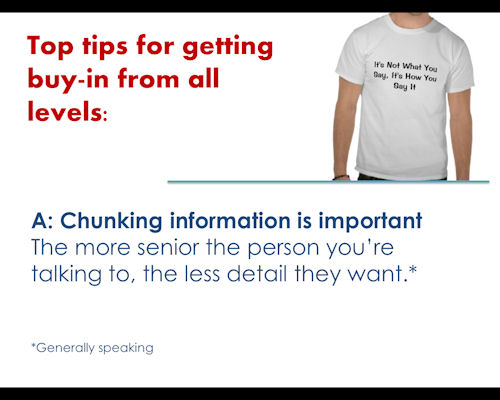Hey you, yes you! You may not think you are eligible for the Special Library Assocation's Early Career Conference Award, but there's a good chance you are. You may not think the SLA is relevant to you because you don't work in a 'special' library, but it IS, trust me.

Winning the ECCA award could change your whole outlook. It could be incredibly beneficial. Here are 10 reasons to apply:
- You don't have to be THAT early in your career - it's within 5 years of obtaining your Masters. So in other words, I could apply! (Former winners can't actually apply but the point being, I qualified in 2009 so I am eligible in that sense.)
- It's probably the best single prize it is possible to win in librarianship. To quote SLA-Europe's website: "Each Award is worth about $4000. It covers the full cost of Conference registration, hotel lodging, economy return airfare to Vancouver, and meals and appropriate incidental expenses." I mean, come on! I should just copy and paste that for the remaining 8 things. It's a ludicrously good prize by any measure.
- Whatever your sector, the SLA has relevance to you. The SLA isn't all about special libraries. There is, of course, a lot of good content (both in the conference and the organisation more generally) if you're a legal, health, business or pharma librarian - but a huge percentage of members are from the academic library world, for example. There's public librarians too. But the information you can glean from the talks will apply to any sector - it's just really high quality speakers talking about really relevant things.
- The SLA Conference is completely and utterly brilliant. It is SUCH a good event. I have only been once, but by all accounts it's amazing every year. I am going in 2014, I have FORCED myself to find a way back* because it was the single greatest experience of my professional career. It's on an epic scale but it's focused - you come away inspired, no longer gripped by whatever existential crisis is wasting our time in the profession, buzzing with ideas, and equipped to be a better information professional.
- The SLA Conference is made more brilliant by experiencing it with the other ECCA winners. There will be 3 winners this year, from different divisions. The three of you will form a little gang and roam around Vancouver together and it is SO much richer for that. I won't labour this point because people told me about it before I went and I didn't really appreciate what they were going on about until it happened - but basically you make friendships and you have this great communal experience in a sort of ECCA bubble and it's ace. Also, everyone is incredibly friendly and welcoming to the ECCAs.
- There is a very flat hierarchy at the conference. There aren't cliques of senior people and junior people. Everyone mixes with everyone, everyone has time for everyone else. It's a great opportunity to actually exchange ideas with very high-up people and be treated as an equal. You are, as Penny Andrews put it, valued. She also points out something I've mentioned a lot - the LMD (Leadership and Management Division) is NOT just for senior people, it's for people who want to become or learn from leaders and managers.
- You get to travel and interact with the international community. Every time I've had the chance to go abroad I've found the international perspective on libraries and our profession invaluable. And you get to hear amazing speakers like Stephen Abrams and Mary Ellen Bates who rarely come to England (and then chat with them afterwards - see number 6, above).
- You will become an SLA member if you aren't already. Becoming part of SLA is awesome. Everyone I know who is a member values it enormously. I've written before about how being part of the SLA gives you confidence. There are plenty of relevant events in the UK too. Also, you tend to go on to get involved with the SLA in some capacity or other - for example Sam Wiggins who won an ECCA the same year as me is the Chair of SLA-Europe next year, I've served on the main SLA Online Advisory Council and as an ECCA judge - the list is endless really. The ECCA is just the beginning.
- There is a serious emphasis on fun. The SLA take the profession seriously but they take their fun seriously too. There are events and parties every night, there is a ludicrous amount of booze, and you have to really go out of your way to actually pay for anything. The conference never really stops the whole time you're there. It's intense, overwhelming, but, as Simon said, you still feel like you're buzzing a month later.
- If you win the ECCA, then on June 11th 2014, you'll be on a plane back home, a more knowledgeable, creative, inspired, happy, confident and future-ready information professional. It really is that good. .
Notice that none of the above are 'it's good for your CV'. Of course, it IS good for your CV, to win a prestigious international prize. But it's really not the winning itself which matters, it's what you get from it - and you get so much from it, that the CV is just an afterthought.
Finally a couple of quick tips for your application (speaking as a former judge):
- You will be representing SLA-Europe as an award winner. Remember that - it's not just about all the amazing things you've done in your career so far, it's about actually being in Vancouver as a sort of ambassador for the division.
- On a related note, your letter of recommendation matters too. The judges want to know what your referee things about you - they also want to know what they think about you winning this prize and going to Vancouver, interacting, networking, learning and so on.
- Part 2 of the application - "What specific benefits and knowledge do you hope to gain from attending the 2014 SLA Conference and working with SLA Europe and your chosen SLA Division in the future?" - is important. There are a LOT of very good applications for these awards, so it's really nice for the judges to be able to filter out a whole bunch and put them on the pile marked 'apparently just fancies winning an award / going on a free trip abroad'. You need to talk about the relationship you are entering into with the SLA and how that will develop over time.
- If you've applied before and not won, don't let that put you off. I didn't get it the first time I tried, I know other winners who were second time lucky. .
If you have any questions, leave them in a comment and I'll endeavour to answer them. Basically I can't recommend applying for this highly enough - it will make your life awesome if you win.
Finally, you can read my own reflections on the 2011 ECCA experience on SLA-Europe's blog, and embedded below is the video I made at the conference. GOOD LUCK!
(Here's that application link, one more time.)
*It's amazing how many ECCA's find a way back. Many have gone most years since they won. Despite the massive logistical effort it constitutes, and having to find ways of paying for it, it's so completely amazing that you find a way back.




